Thymoquinone Content In Black Seed Oil
So as we continuously strive to give our customers an edge over their competition in selling the natural goods they procure from us… Here, we provide a resource for those seeking to leverage thymoquinone content in their black seed oil… As a way of increasing customer loyalty & boosting sales! So by the end of reading this article you should understand what thymoquinone is. Likewise, thymoquinone’s importance in selling black seed oil. Additional, to how you can help your customers understand why the thymoquinone content in your black seed oil is superior to your competitors. As well as how to correctly express the thymoquinone content in your black seed oil labelling. Yes! We aim to explain to you some somewhat esoteric details as regards thymoquinone content in black seed oil! All of course supported by the relevant academic literature. So, let’s do this… Together!
Table of Contents:
- What is Thymoquinone?
- Black Seed Oil Thymoquinone Benefits
- Thymoquinone on Cancer
- Antioxidant Activity of Nigella Sativa’s Essential Oil
- Hepatoprotective Function of Thymoquinone
- Thymoquinone on Tumors
- Cardioprotective Properties of Thymoquinone
- Anti-Inflammatory Properties of Thymoquinone
- Thymoquinone on Diabetes
- Thymoquinone’s Anti-Microbial Activity
- Immunomodulation and Thymoquinone
- Anti-Histaminic Properties of Thymoquinone
- Thymoquinone’s Gastroprotective Activity
- Thymoquinone’s Nephroprotective Function
- Neuroprotective Functions of Thymoquinone:
- Thymoquinone and Bone Complications
- Thymoquinone Against Fibrosis
- Reproduction and Thymoquinone
- Thymoquinone Against Respiratory Diseases
- Is Thymoquinone Hypoglycemic?
- Is Thymoquinone Safe?
- How To Label Your Thymoquinone Content
- Example: Black Seed Oil 7% Thymoquinone
Firstly, What Is Thymoquinone?
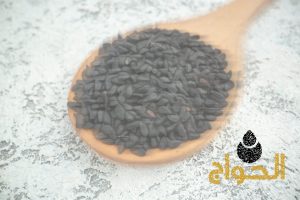
So, you’re probably already aware of exactly what black seed oil is… Right!?
So let’s get into what thymoquinone is. And specifically why thymoquinone content in black seed oil is so important! So, thymoquinone has been described by some researchers as:
“…an emerging natural drug with a wide range of medical applications…”
Other researchers decorate thymoquinone as:
Moreover, thymoquinone is considered a dietary phytochemical. Whilst thymoquinone (TQ) is also the most abundant constituent of the volatile oil (or essential oil) of Nigella sativa seeds (aka. black seeds, or black cumin seeds). And most medicinal properties of black seed oil are associated with it’s thymoquinone content. So, it may be worthwhile to learn a short and concise way of introducing thymoquinone to your customers whom may not be aware of it. As well as describing it on any of your marketing content. Whether that be online, or on printed advertisements. And packaging. But of course it’s description… Even in a concise sense, doesn’t end there…
Not for us anyway.
Not in this article.
As you’re leveraging thymoquinone content in your black seed oil, in order to increase your profitability.
Black Seed Oil Thymoquinone Benefits
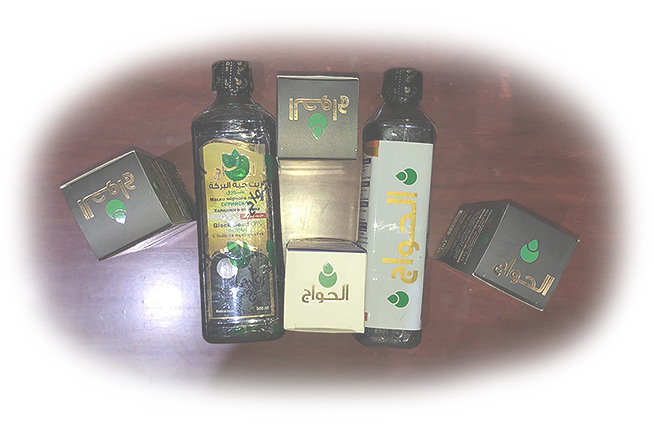
So in this section we’ll hopefully start understanding the important role of thymoquinone in black seed oil.
Generally.
Which should form a basis for you to leverage the thymoquinone content of your black seed oil.
Specifically.
So let’s start by listing some of the academically reported activities… Or medical applications… Or pharmacological effects or functions of thymoquinone (TQ).
- Firstly, is it’s anti-carcinogenic function. Meaning, thymoquinone has been academically reported as delaying or preventing the onset of cancer.
- Secondly, it’s anti-oxidant function. So antioxidants scavenge free radicals from the body’s cells and reduce or prevent the damage caused by oxidation. Ultimately this may reduce the risk of major diseases. Such as certain cancers. As well as heart disease.
- Thirdly, hepatoprotective. Meaning, protective against damage to your liver.
- Fourthly, anti-tumor. Meaning, inhibiting the growth of tumors in the body. Note, not all tumors are cancerous. Some tumors are simply benign.
- Fifthly, cardioprotective. Defined as, “all mechanisms. and means that contribute to the preservation of the heart by reducing or even preventing myocar-dial damage“.
- Sixthly, is thymoquinone’s anti-inflammatory function. Meaning, aiding in the reduction of inflammation in the body.
- Seventhly, anti-diabetic. Meaning, helping to treat or prevent the onset of diabetes.
- Eighthly, anti-microbial. Referring to a substance that kills microorganisms such as bacteria or mold, or stops them from growing and causing disease.
- Ninthly, immunomodulatory.
- Tenthly, anti-histaminic. Meaning, to block the adverse effects of histamines. Which can bring about an onset of fever, a runny nose, watery eyes, itching and sneezing for example.
- Eleventhly, gastroprotective. Meaning, protective against diseases of the stomach.
- Twelfthly, nephroprotective. Meaning to preserve kidney function.
- Thirteenthly, neuroprotective. Meaning, protective against death to your nerve cells.
- Fourteenthly, is thymoquinone’s positive effect on bone complications.
- Fifteenthly, is it’s positive effect on fibrosis. So. fibrosis is defined by the overgrowth, hardening, and/or scarring of various tissues.
- Sixteenth, anti-infertility. Referring to thymoquinone’s positive effect on certain reproductive disorders.
- Seventeenth, is thymoquinone’s assistance against respiratory ailments.
- Eighteenth, is thymoquinone’s hypoglycemic function. Referring to the reduction of sugar present in the blood.
- Finally, thymoquinone has little to no adverse effects. Nor any serious toxicity. And all that based upon a large body of data.
So now we’ve summarized this amazing array of academically reported thymoquinone benefits… Let’s go through each one in a bit more depth to bolster our arsenal in understanding the importance of thymoquinone content in black seed oil! Note you can fast forward to the thymoquinone function/s that interest you the most. Or more efficiently… Skip to the thymoquinone functions that are most applicable to your target customer audience…
Thymoquinone and Cancer

So firstly, thymoquinone (TQ) has been reported by researchers as:
Other researchers describe thymoquinone as:
Additionally, and amazingly even more academics assert thymoquinone’s anti-cancer function by way of stating:
So as we can see, the thymoquinone content of black seed oil is important in regards to it’s anti-cancer function. Therefore, expressing to your potential consumers the thymoquinone content of the black seed oil you sell can be an effective way to increase sales. As well as customer retention. Especially, those looking for a potent, but naturally occurring anti-cancer agent. As well as one which can increase the anticancer potential of pharmaceutical drugs… Whilst reducing their toxic side effects.
Antioxidant Activity Of Nigella Sativa Essential Oil, In General and Of Thymoquinone, In Specific

Firstly, we should try to grasp that black seed oil contains both fixed oil. As well as essential oil. Also known or referred to as volatile oil.
Volatile Oil Aka Essential Oil
So, volatile oil is a concentrated hydrophobic liquid consisting of volatile chemical compounds from plants.
Fixed Oil
Whilst, fixed oil is a nonvolatile oil derived either from plants. Or animals.
There are some fundamental differences between volatile oil and fixed oil.
But that doesn’t concern us here too much. Rather, what we want to understand is that thymoquinone is derived from the essential (volatile) oil of black seed oil. Not from black seed oil’s fixed oil.
So, we know that an anti-oxidant is a substance that protects cells from the damage caused by free radicals. Thereafter, in a recent academic study, researchers concluded:
Furthermore, as we already know. Thymoquinone is the most abundant constituent of black seed oil’s volatile oil. And in this particular study the percentage content of thymoquinone present in black seed oil samples was between 28% and 57%. Thus supporting the notion of thymoquinone functioning as an antioxidant.

Furthermore, researchers have stated:
“Antioxidant property is considered one of the vital properties of TQ.”
They even go onto detail thymoquinone’s antioxidant function…
“Thymoquinone acts by induction of cytoprotective enzymes resulting in [the] cells’ protection against oxidative stress induced cellular damage.”
Finally, another research study has demonstrated the antioxidant function of TQ in preventing chemical-induced carcinogenesis. Researchers reported:
Thus, we can see the thymoquinone content of black seed oil is also important in regards to it’s antioxidant function. Therefore, giving you another reason to leverage the thymoquinone content in your black seed oil… In order to attract more customers and boost sales. Especially, with the academic research supporting this beneficial property.
Does The Thymoquinone Content In Black Seed Oil Really Have Hepatoprotective Function?

So as previously mentioned in our initial list… Hepatoprotection refers to being protective against damage to the liver. So in this section we look into whether the thymoquinone content in black seed oil can protect against liver damage.
So, in answering that question… Researchers of one recent academic study conclude:
“…TQ protects against TAM-induced [tamoxifen-induced] hepatotoxicity.”
Furthermore, this is an example of thymoquinone reducing the toxic effects of clinical drugs. As tamoxifen (TAM) is an anti estrogen used in the treatment and prevention of hormone dependent breast cancer.
In another study, researchers reported that orally administered TQ showed a pivotal role in the protection of various organs against oxidative damage induced by free radical-generating agents. Such as carbon tetrachloride-evoked hepatotoxicity. In other words damage to the liver.
Additionally, in a very recent study… Researchers concluded:
Thus, we can see the thymoquinone content of black seed oil is also important in regards to it’s hepatoprotective function. Therefore, giving you another angle in leveraging the thymoquinone content in your black seed oil… To ultimately boost sales and customer retention. As supported by academic research.
Thymoquinone On Tumors

Or thymoquinone on tumours. In the british-english expression. But of course we are concerned with thymoquinone’s anti-tumor function. Meaning, to inhibit the growth of tumors in the body. Note, not all tumors are cancerous. Some tumors are simply benign. Or non-cancerous. So let’s check out some academic research proofs for TQ’s anti tumor function!
Firstly, one study’s results showed…
…That treatment of tumor-bearing mice with 10 mg/kg TQ showed significant ability to reduce tumor growth… With a percentage change in tumor size of (−1.25%) as compared to untreated mice (+209.82%)…
Thus, treatment of tumor-bearing mice with TQ (Thymoquinone), combined with another drug (CB 1954). caused a significant regression in tumor size and induced extensive necrosis in these tumors.
Furthermore, other researchers concluded:
Therefore, we can conclude thymoquinone content of black seed oil as also important in regards to it’s anti-tumor activity.
Thymoquinone Properties: Cardioprotection

So, as previously mentioned cardioprotection refers to preserving the heart. As well as reducing… Or even preventing myocardial damage. So if you’ve been following so far then you’ll know that you can now advertise your black seed oil as anti-tumor. Hepatoprotective etc. With specific reference to the thymoquinone content in your black seed oil as being the main active constituent researchers associate with these amazing functions. So let’s move on to see if the academic research also supports thymoquinone as cardioprotective.
But firstly, let’s understand…
“CVDs [cardiovascular disorders] form the single largest cause of early mortality in developed as well as developing countries at an alarming rate.”
Or as ourworldindata.org mentions…
“Cardiovascular diseases are the leading cause of death globally. The second biggest cause are cancers.”
Thus, cardioprotective agents are of great benefit to humanity.
On a global level. As well as for your target market communities…
So what do academics conclude in regards to thymoquinone being cardioprotective?
“It has been observed in different studies that TQ [thymoquinone] efficiently improved CVD…”

Also…
“Various studies have shown that TQ promotes and boosts heart health.”
Another study’s researchers concluded:
“Results of our study revealed that thymoquinone protects the heart from injury…”
Another study, from a completely different country supports the aforementioned findings. Whilst even more researchers state:
So yes! We can conclude thymoquinone content of black seed oil as possessing cardioprotective activity. A major addition to thymoquinone’s plethora of medical applications. Something your target customer base should know about. So let them know!
Does Thymoquinone Content In Black Seed Oil Act As An Anti-inflammatory?

Well let’s find out…
So in a fairly recent study comparing thymoquinone’s anti-inflammatory properties with another bioactive substance (curcumin)… Researchers reported…
“These results suggest that TQ [thymoquinone] is more potent [than curcumin] in inhibiting the inflammatory changes associating asthma.”
Ok. But why is a comparison with curcumin significant in the first place? Well…
So, that’s why this comparison is significant!
Therefore, you can confidently market your black seed oil as, ‘a more potent anti-inflammatory than curcumin!’… Based upon research on thymoquinone content in black seed oil… Of course.
Additionally, results of another study read:
“Histological examination of lung tissue demonstrated that TQ significantly inhibited allergen-induced lung eosinophilic inflammation and mucus-producing goblet cells.”
So, this is another academic proof…
And the same researchers further express:
“These data suggest that TQ attenuates [decreases] allergic airway inflammation… Thus demonstrating its potential anti-inflammatory role during the allergic response in the lung.”
Additionally, even more researchers attest to thymoquinone’s anti-inflammatory function:
Thus, purchasing black seed oil with greater thymoquinone content… Such as Ethiopian or Egyptian black seed oil is more conducive for boosting your sales based upon thymoquinone content. As naturally customers will prefer the types of black seed oil that have greater thymoquinone content. So, more TQ equates more medicinal benefit. Like anti-inflammatory function.
Thymoquinone On Diabetes
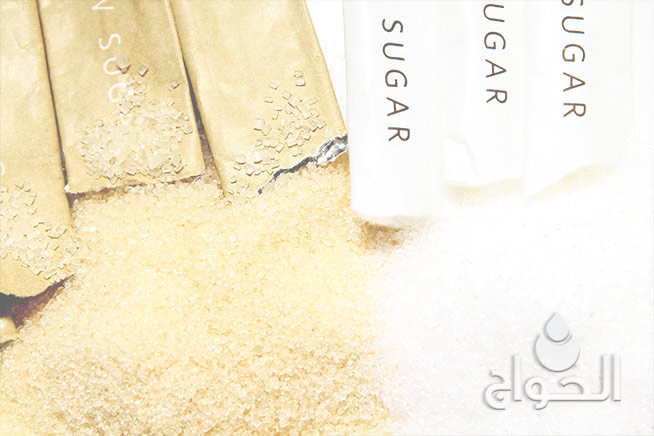
As we have already established that black seed oil is good for diabetes… Let’s look closer at whether or not the thymoquinone content in black seed oil plays a role in this anti-diabetic effect?
Briefly, diabetes is a chronic disease that involves a deficiency in insulin caused by β-cell damage. However, academic research shows thymoquinone (TQ) has anti-diabetic properties through protecting the β-cell from injury. An example of this is a study where researchers state:
Likewise, another study showed:
“TQ (50 mg/kg for 30 days, gastric gavage) decreased blood glucose levels in gestational diabetic hamster[s] by inhibiting the synthesis of gluconeogenic enzymes.”
Thus we have affirmed another beneficial property to add to our list. So you can now advertise your black seed oil as an anti-diabetic. Based upon it’s thymoquinone content of course!
So Is The Thymoquinone Content In Black Seed Oil Anti-microbial?

Firstly, as aforementioned… Anti-microbial activity refers to eliminating microorganisms such as bacteria or mold. Or stopping them from growing and causing disease. So does thymoquinone (TQ) do this?
In one study, Staph. aureus (type of bacteria) was very susceptible to TQ… Moreover, thymoquinone Even killed this bacteria at a certain dose. Thus, demonstrating thymoquinone’s anti-microbial… As well as it’s anti-bacterial function. In this instance.
Furthermore, academic research reporting from a number of studies concludes…
“TQ showed activities against a wide range of microorganisms including bacteria, fungi, and viruses… TQ also demonstrated… antifungal activity against some very important fungal pathogens… A limited number of studies also suggest the efficacy of N. sativa and TQ against viruses including cytomegalovirus (CMV), hepatitis C virus (HCV), and influenza virus…”
Thus, the academic research firmly supports thymoquinone content in black seed oil as anti-microbial. Which encompasses anti-bacterial, as well as anti-fungal functions. So we can add this major function to thymoquinone’s amazing portfolio of medical applications. Again, something you can leverage to increase sales!
Thymoquinone and Immunomodulation

So, immunomodulation is…
‘Change in the body’s immune system, caused by agents that activate or suppress its function.’
And in regards to thymoquinone’s immunomodulatory function… Some researchers have mentioned:
Ok, but is thymoquinone’s immunomodulatory function beneficial to health? Let’s see…
Well with these conclusions from even more researchers… It seems thymoquinone’s immunomodulatory activity is beneficial to health. But to further cement our understanding… Let’s observe the conclusions of yet more academics…
So here not only do researchers report TQ’s positive immunomodulatory effects on atopic dermatitis (often called eczema)… But they also suggest an academic pathway to establishing TQ as a treatment for this skin condition!
So Is The Thymoquinone Content In Black Seed Oil Anti-histaminic?

So, as previously mentioned an anti-histaminic effect means:
‘To block the adverse effects of histamines. Which can bring about an onset of fever, a runny nose, watery eyes, itching and sneezing for example.’
And some researchers claim…
“…TQ has a potent anti-histaminic effect.”
Researchers further assert…
“…it is proven that a main mechanism by which TQ acts against gastric injury is an anti-histaminic action.”
Thus, based on these academic conclusions… As well as the studies they come from… You can market your black seed oil as an anti-histaminic… Based upon the thymoquinone content of your black seed oil. Moreover, the last conclusion brings us nicely into our next pharmacological effect of thymoquinone…
Is Thymoquinone Gastroprotective?

So as aforementioned… Gastroprotection refers to protection against diseases of the stomach. So some academics have mentioned the following in regards to thymoquinone’s gastroprotective activity…
More researchers conclude:
Thus adding more support to the notion of thymoquinone being gastroprotective… So, here we have another medicinal application of thymoquinone content in black seed oil. And again, this is another benefit for you leverage to boost sales. Especially, for those customers seeking natural gastroprotective solutions.
Is Thymoquinone Nephroprotective?
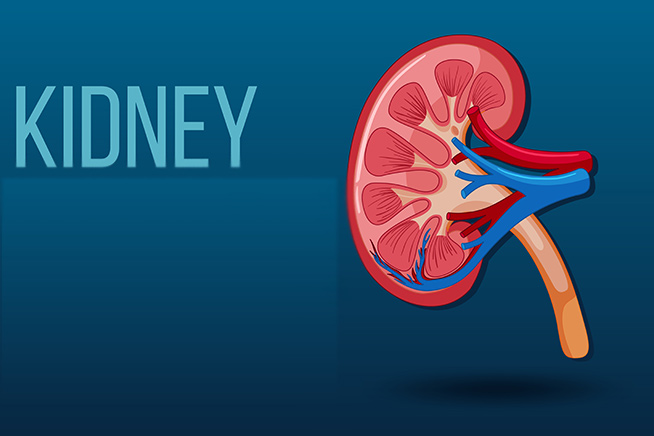
So, nephroprotection refers to protecting the kidney from harm. But is the thymoquinone content in black seed oil nephroprotective?
Well in a recent study researchers found…
So here, not only did thymoquinone display nephroprotective activity… But it also out-classed other nephroprotective agents! Thus, driving researchers to mention…
“In conclusion, we suggest that TQ may be used as a prophylactic [disease preventing] agent against nephrotoxicity…”
Additionally, a recent academic review, including 12 studies in which chemotherapy-induced nephrotoxicity (kidney damage) was combated by NS (Nigella sativa) or TQ (thymoquinone) concluded:
Therefore, we can safely add nephroprotection to thymoquinone’s medical functions… So, here you have another reason to leverage the thymoquinone content in your black seed oil.
Now, let’s move on to the next one…
Is The Thymoquinone Content In Black Seed Oil Neuroprotective?

Firstly, let’s define neuroprotection…
So, what does the academic literature report on thymoquinone’s neuroprotective activity?
Thymoquinone’s Neuroprotection Against Neuroinflammation
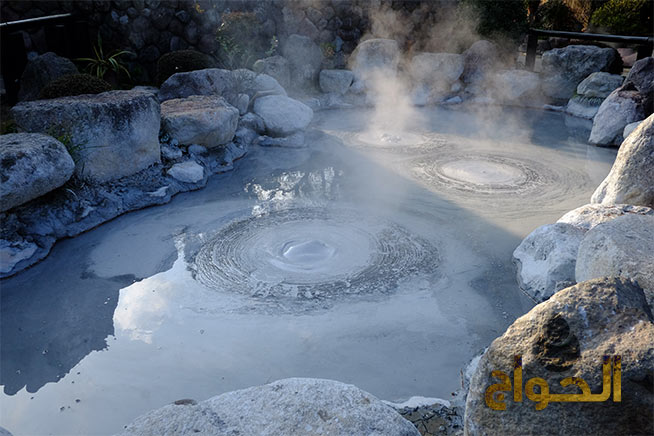
Well, firstly let’s look at neuroinflammation. Which is basically inflammation of nervous tissue. Moreover, inflammation is reported as the main factor involved in the development of Parkinson’s disease (PD). As well as Alzheimer disease (AD). Furthermore, activation of microglia is reported as the main factor for the ignition, as well as the progression of neuroinflammation.
So astonishingly, some researchers conclude:
“Taken together, these studies show that TQ inhibits… neuroinflammation in… microglia”
Furthermore, another study also supported this conclusion.
Thymoquinone’s Neuroprotection Against Depression

Now, in continuing in our discovery of thymoquinone’s neuroprotective function… Let’s look at it’s effect on depression. So, in this regard some researchers conclude:
“Nigella sativa and TQ had protective effects on LPS-induced depression-like behavior…”
Thus, based on this academic conclusion, we can dub TQ as possessing neuroprotective function, generally… But also, anti depressant activity, in specific.
Thymoquinone’s Neuroprotection Against Epilepsy

Thereafter, let’s look into thymoquinone’s effect on epilepsy.
So, in regards to this neurological disorder, some researchers report…
“…TQ treatment (10 mg/kg) decreased brain injuries induced by SE [status epilepticus, a form of epilepsy] via modulating the Nrf2 signaling pathway involved in the activation of the antioxidant defense system. In addition, the behavioral experiments indicated that TQ also improved learning and memory function…”
Thymoquinone’s anti-epileptic and neuroprotective function was also reported in another study. Here, researchers found:
“…TQ (10 mg/kg) prevented epilepsy by decreasing gene expression of NF-kB…”
Researchers also reported:
“Thymoquinone… lowered death rate, decreased seizure severity, and improved learning and memory functions.”
Whilst, yet another study affirmed thymoquinone’s antiepileptogenic function. Thus, adding even more weight to thymoquinone’s neuroprotective function. Especially, against epilepsy.
Is Thymoquinone Content in Black Seed Oil Neuroprotective Against Parkinson’s Disease?

So, in addition to the growing list of neuroprotective functions of thymoquinone… Let’s look into TQ’s effect on Parkinson’s disease. Which is described as…
So, one study shows…
Furthermore, many other studies report thymoquinone’s positive effect on Parkinson’s disease.
Neuroprotection of Thymoquinone Against Alzheimer’s Disease?
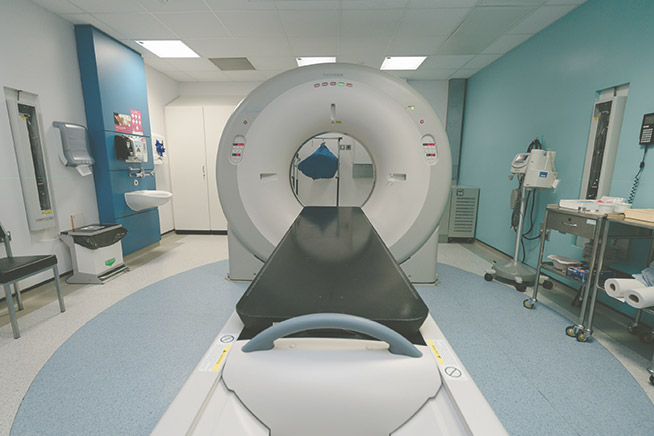
So Alzheimer’s disease is described as…
So based upon the findings of one academic study it can be concluded:
“These findings confirmed that TQ may be an effective treatment in AD [Alzheimer’s disease].”
And of course there are numerous other studies to support this view.
So overall there is much in-depth academic research supporting thymoquinone’s neuroprotective activity. And so you have another amazing medical application of thymoquinone content in black seed oil. Which you can leverage to attract more traffic to your black seed oil.
Thymoquinone Content In Black Seed Oil On Bone Complications?
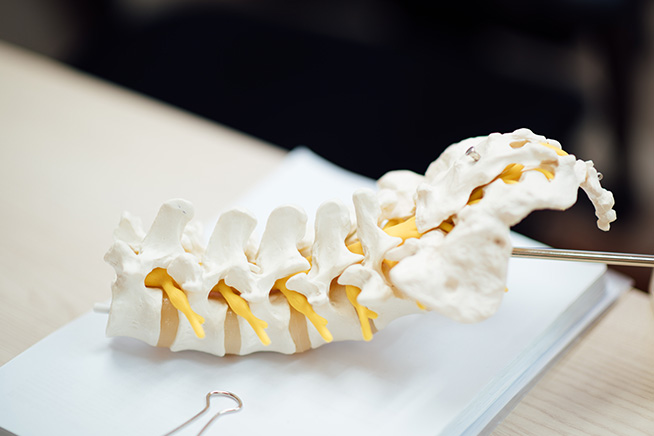
Now let’s look at if thymoquinone’s pharmacological effects literally transcend deep into our very bones?
Well, one recent academic study demonstrated that thymoquinone was effective in bone healing. In fact…
“It has shown that the alveolar bone loss due to periodontitis was reduced by… [gastric administered] TQ…”
Additionally, the following can be concluded from the results of another study:
“In addition, systemic use of TQ in rats resulted in measurable acceleration of bone formation. Systemic administration of 10 mg/kg of TQ can promote bone formation…”
So yet again we have another medical application of thymoquinone’s content in black seed oil. Now, let’s continue and investigate thymoquinone’s effect against fibrosis…
So, Is Thymoquinone Beneficial Against Fibrosis?

Firstly, as we have previously mentioned… Fibrosis is defined as the overgrowth, hardening, and/or scarring of various tissues.
Secondly, one study investigating the preventative and therapeutic effects of thymoquinone on pulmonary fibrosis (a lung disease) concluded:
Also, other researchers conclude:
“TQ may be a potential candidate for the therapy of hepatic fibrosis.”
So there we have it! Academic literature supporting the notion that the thymoquinone content in black seed oil is beneficial against fibrosis. But amazingly, we are not done here!
So, Is Thymoquinone Beneficial Against Reproductive Disorders?

Let’s get straight into this one… Researchers have reported thymoquinone as cytotoxic (toxic) towards…
Therefore, researchers concluded:
“The use of TQ could be a viable option for reproductive system diseases.”
Another recent academic study investigated the effects of TQ on obesity and testicular structure. Here researchers concluded…
“The number of healthy sperm was increased and the anomalies significantly reduced by using TQ…”
Thus, demonstrating thymoquinone’s beneficial effect on reproduction. Additionally, cadmium chloride can induce reproductive toxicity. However, in one study thymoquinone administration prevented the harmful effects of cadmium chloride via activating testicular endocrine and antioxidant systems.
Therefore, these studies, along with the gulf of published academic literature champion thymoquinone as beneficial against reproductive ailments. Thus, you can leverage the thymoquinone content in your black seed oil as such.
Thymoquinone On Respiratory Diseases?

So, what are respiratory diseases?
Well according to britannica.com, respiratory diseases are:
“any of the diseases and disorders of the airways and the lungs that affect human respiration”
Thus, according to this definition SARS-Cov-2 would certainly be considered a respiratory disease. So, severe acute respiratory syndrome coronavirus 2 (or SARS-Cov-2) is said to be a strain of coronavirus that causes Covid-19. Which is a said to be a respiratory illness.
But, does thymoquinone have any beneficial medical application for this type of respiratory disease?
Well, here’s what some researchers have mentioned in this regard…
And, thus we have a medical benefit, that is very applicable to current world events. Thus, adding even more clout to the thymoquinone content in your black seed oil.
But, Is Thymoquinone Hypoglycemic?

So to answer this question let’s present what some researchers who looked at multiple academic studies concluded:
So, yet again we have another amazing medical application of the thymoquinone content in black seed oil. But, we’re still not finished.
Is Thymoquinone Safe?

From all the academic research papers we have looked at… We have observed that generally, academics find thymoquinone to be extremely safe. That being with almost no toxicity and little known side-effects. So here are some examples academic literature supporting this…
Firstly, the following results are from a study looking into the general toxicities of thymoquinone in humans…
“No side effects were reported and the maximum tolerated dose (MDT) was not identified.”
Secondly, the following conclusions are from a paper reviewing multiple studies into the therapeutic potentials of thymoquinone…
Thirdly, other researchers assert:
Thus supporting thymoquinone’s claim for being relatively low in toxicity. As well as low in known adverse-effects.
How To Correctly Express The Thymoquinone Content In Your Black Seed Oil Labelling

So, as you may be aware some retailers display the thymoquinone content of their black seed oil as a percentage. 1%. 2%. Etc. However, we ask the logical question of…
“What do these percentages actually mean?”
Surely, as a retailer you want to express your thymoquinone content in a way your customers can easily understand… Right?
So, therefore we advise with expressing the thymoquinone content in your black seed oil in similar ways to how the academics express theirs…
That is, mg/kg or milligrams per kilograms… As we have seen researchers use in their academic work in our tumor, diabetes, gastroprotection and epilepsy sections.
Black Seed Oil 7% Thymoquinone
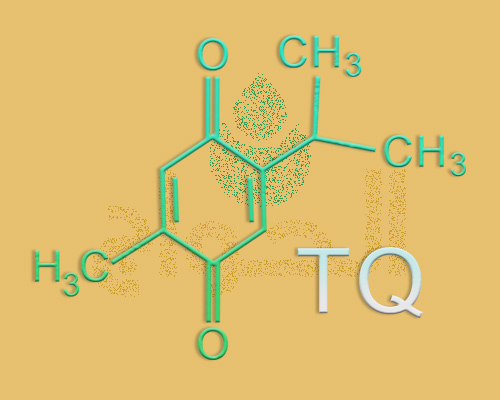
So for example if the thymoquinone content of your black seed oil is 7000mg/kg that translates to 7000 milligrams per kilogram of black seed oil. Another way you can express this 70 milligrams per 10grams of black seed oil. And likewise if you’d still like to give a percentage then you can express your thymoquinone content as 7% of 10grams of black seed oil.
Meaning, that you can give your customers a real-life tangible way of understanding the thymoquinone content in your black seed oil.
For example…
Observe the following table…
|
3 teaspoons equals… |
1 tablespoon equals… |
14.3 grams |
So, if the thymoquinone content of your black seed oil is 7000mg/kg then the following table applies to you:
|
33.36mg of TQ per teaspoon of black seed oil (approx) |
100.10mg of TQ per tablespoon of black seed oil (approx) |
So, using the method we recommend… As based upon academic literature… Your customers can grasp more easily the approximate doses of thymoquinone they consume from your black seed oil.
Conclusion
So that’s it! Academic research demonstrating a wide range of medical applications of thymoquinone content in black seed oil! From it’s organprotective properties. Such as being nephroprotective. Hepatoprotective. Cardioprotective and more. To it’s amazing effect on cancers, diabetes and neurological disorders. Yes, thymoquinone has many a medicinal benefit. Making it no doubt an emerging natural drug with a broad scope of pharmacological applications.
So why not give us some feedback on how you found this article. Furthermore we are grateful to receive any comments or suggestions on this our topic of discussion: Thymoquinone content in black seed oil.



